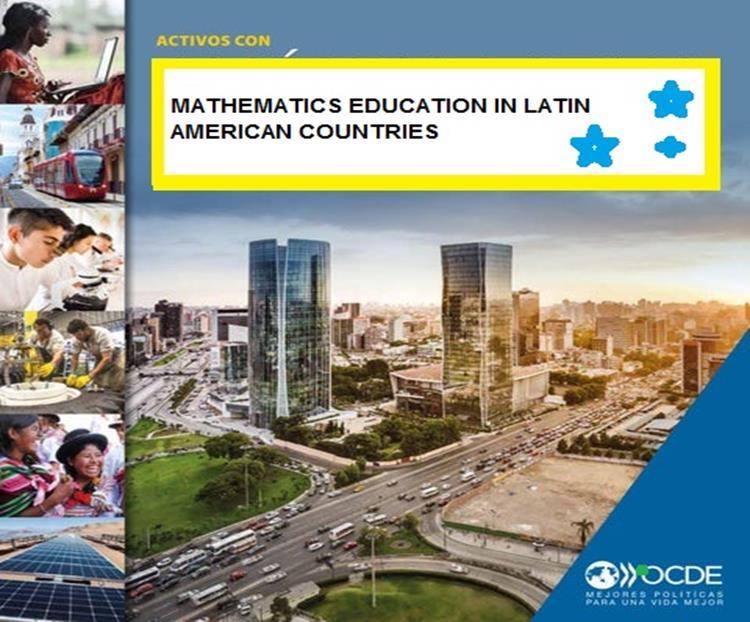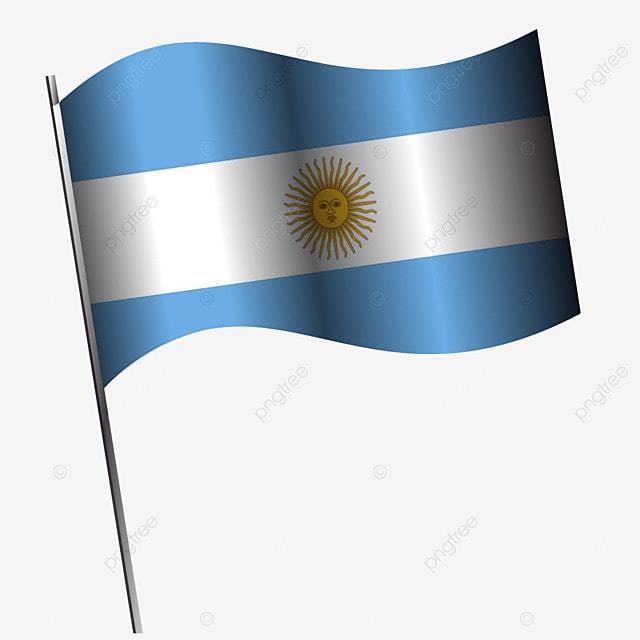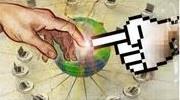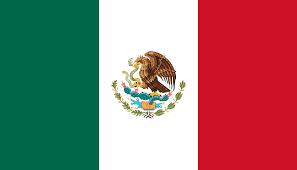MATHEMATICS








In Argentina, significant challenges are faced in the field of Didactics and Mathematics Education, as reflected in the results of international assessments such as the OECD's PISA. This assessment does not focus only on the school curriculum, but analyzes how well prepared students are to face life's challenges. These results reveal that a considerable proportion of students are below the desired levels in mathematical competence, i.e., Argentina is below the level of improvement of neighboring
countries such as Brazil and Chile, which indicates the existence of gaps compared to other countries in the region.
Therefore, this region shows the need to strengthen teaching and learning in this area. To improve the situation, it is essential to implement effective strategies in Mathematics Didactics and Mathematics Education. It is necessary to establish a common focus on content and cognitive processes, and to use
assessment methods that allow obtaining accurate information on students' knowledge and skills. An outstanding experience is the International Seminar and Conference on Problem Solving, which is held annually to coincide with the National Mathematics Olympiad. This event brings together experts from all over the world and more than 300 Argentine teachers for a week. The Mathematics Olympiads are recognized as one of the most important and highest quality mathematics competitions in the Latin American and Caribbean region. These

competitions cover students from elementary to high school and involve professional mathematicians.
In addition, the University of Buenos Aires (UBA) plays an important role in bringing mathematics closer to the general public through its Basic Mathematics Cycle. Each year, they organize Elementary Mathematics Exhibits and host school groups for two-day visits. During these visits, students have the opportunity to explore a mathematics exhibit and participate in pre-prepared math games. They also offer talks aimed at different audiences, such as teachers, students of different levels and the general public. Solution proposal.

According to the author (Levy,2007, p.32) he mentions that "Digital culture is materialized in new communication and knowledge construction devices, which represent a paradigm shift for society in general, and for teaching and learning processes" according to the Argentine author should focus on information and communication technologies (TIC) since they are mediators both in the processes of construction and circulation of knowledge and in the exercise of citizenship. Therefore, it is necessary that students learn to use and interact with them, including these new technologies in the educational proposals in a relevant way.

Mathematics teaching in Argentina and in Latin America in general faces important challenges in terms of student performance. To improve the situation, it is recommended, to use information and communication technologies (TIC) so that teachers and students have access to more resources, some possibilities offered by the digital resources available to promote mathematics learning in the classroom, such as using a calculator to analyze the properties of numbers, using a spreadsheet to analyze a problem, using computer tools to establish the degree of correlations between two variables, building a program by sequencing instructions to obtain a result from the iteration of simple calculations. In other words, we must find strategies to simultaneously improve mathematical and linguistic literacy, and continue to involve mathematics education faculties to further support mathematics teachers in the fields of pedagogy and didactics.

One of the oldest mathematical events is the mathematical Olympiads, which have been celebrated for 30 years. This competition has been a benchmark in promoting mathematical excellence and has provided development opportunities for students from Colombia and other parts of Latin America.

These Olympiads have become a reference for the development of highlevel mathematical skills and competencies, showcasing the country's talent.

Colombia was the first country to organize the Ibero-American Mathematical Olympiad, playing a role in creating this competition and bringing together outstanding students with advanced mathematical knowledge. It also strengthened bonds among participants, promoting meaningful knowledge exchange.

It is worth noting that Colombia has played an important role in the Bolivarian Mathematical Olympiad since its inception in 2000. Its purpose is to gather students from Bolivarian countries to demonstrate mathematical talent and skills.

assessments such as Trends in the International.

These Olympiads have left a significant mark, becoming one of the oldest and most prominent Olympiads. However, it is important not to overlook the concern regarding mathematics education. In recent years, inadequate handling of mathematical tasks has become a major problem for all countries in Latin America and the Caribbean. This has resulted in setbacks for students, which can be observed in the outcomes of international
There are also other tests such as the OECD's Programme for International Student Assessment (PISA), which evaluates students' skills and knowledge. According to the reading and mathematics results for some countries found in the OECD's 2006 PISA database, we see how Colombia, with a score of 385 in reading and 370 in mathematics, is among the bottom three countries with the lowest scores, along with Argentina and Kyrgyzstan.
It is clear that education is provided to the majority of young people in Latin American and Caribbean countries, but its quality is deficient. To achieve effective improvements, it is urgent for teaching professionals to be trained with clear and specific knowledge to impart in the classroom.
Chiles is one of the Latin American countries whose main objective is to guarantee comprehensive and definitive learning, especially in the area of mathematics, where it has implemented different didactic strategies that allow functional and meaningful learning. To emphasize problem solving skills, we can refer to various documents, such as the national Mathematics Curriculum Framework in Chile.

This framework emphasizes the development of problem-solving skills
among students by providing opportunities to apply mathematical concepts and skills in real world contexts.
The use of technology, such as calculators and computers, is also encouraged in mathematics education on Chile, as it can improve student´s understating of mathematical concepts and facilitate problem-solving, collaborative learning is also promoted among students, encouraging them to work together and share their ideas and approaches to problem-solving. The National Mathematics Evaluation System Provides ongoing assessment of student learning,

which informs instruction and supports student progress.
Regarding The teaching and learning process of mathematics in Chile, teachers use various alternative didactic models to appropriate and transform their knowledge to transmit it to students through the didactic relationship between teacher, student, and knowledge.
The National Mathematics Evaluation System demonstrates a commitment to ongoing assessment of student learning. There is a strong emphasis on teacher professional development in Chile, which can support the implementation of effective mathematics instruction.

Negative aspects.
Students from different socioeconomic levels in Chile show significant differences in math performance, indicating an equity problem in mathematics education.
Some schools in Chile may lack access to necessary resources, such ad technology and manipulatives, to effectively implement mathematics teaching.

Mathematics education in Chile has a solid foundation whit a curriculum that emphasizes problem-solving skills, conceptual understanding, and the use of technology.
In conclusion, while mathematics education in Chile has several positive aspects, including a solid curriculum, a commitment to assessment, and a focus on teacher professional development, there are also negative aspects, such as inequity, limited resources, and lack of
teacher support. Addressing these negative aspects will require a continued commitment to equity and access, as well as providing teachers with the necessary support and resources to effectively implement mathematics teaching.

Improving teacher training in Colombia is also crucial to establishing continuous training programs and encouraging collaboration among teachers to share best practices and teaching strategies.
Encouraging the use of technology in education can improve the quality of the educational process.

It is important to establish training programs for teachers and promote the use of digital platforms and online educational resources to complement traditional teaching.
Community involvement in the educational process can also lead to the development of new teaching strategies and improved student learning outcomes. (Goñi Zabala, 2011)

The text highlights the poor state of mathematics education in Mexico, similar to other countries in Latin America and the Caribbean (LAC). Government evaluations reveal unsatisfactory results, emphasizing that improving teacher training is crucial. Efforts are being made by the Mexican Mathematical Society and the Mexican Academy of Sciences to enhance teachers' mathematics knowledge.
In an unprecedented move, the Academy's scientists have launched a program called "Science in your School" to engage elementary and secondary school teachers and transform the prevailing attitude towards mathematics and sciences. The program has been successful in terms of quality but faces the

challenge of reaching nearly one million teachers. To address this, the program is transitioning from traditional classroom education to a semi-virtual school system, closely supported by counselors and scientists. More information about the program can be found on the Mexican Academy of Sciences website.
The Mexican Mathematical Society has also initiated a program to improve the performance of 6,000 elementary school teachers whose students received poor evaluations in mathematics. However, due to shared responsibility for teacher training among the National Education Workers Union (SNTE), the Ministry of Education,
and the Mexican Mathematical Society, the program's academic level may not reach its full potential.

Mathematical contests have a strong tradition in Mexico, exemplified by events such as the Spring Contest organized by
the Mexican Academy of Sciences, which attracted nearly 400,000 participants. Additionally, the Mexican Mathematical Olympics, organized by the Mexican Mathematical Society, has achieved considerable success at the international level.

Periodic internal evaluations, as well as external evaluations, have allowed us to fine-tune the program in all its aspects” (Giral, 2014).
“The Science in your School program began its activities in 2002 as a program of the Mexican Academy of Sciences in the areas of science and mathematics, oriented to basic education teachers. During these ten years, the program has grown and has faced new challenges, such as maintaining its initial quality. The program has grown in two directions. First towards rural areas, and later with the creation of a distance program in order to reach all the states of the republic.
The institution and the classroom as spaces of translation: educational institutions and classrooms are considered as specific networks with their own pedagogical rules and procedures. The school is understood as a set of people, artifacts, discourses, regulations, and spaces that seek to establish a particular way of working. However, this objective is not always achieved.
The uniqueness of secondary and upper secondary education: Unlike elementary school, these educational levels are
organized around subjects with specialized teachers. There is a greater distance between teachers and students and their families, and students are supposed to study and prepare themselves autonomously. However, in some cases, such as secondary schools in Argentina and telesecundaria in Mexico, a concern for pedagogical accompaniment has been developed to favor social inclusion.

The classroom as a space for translation of digital media: It is recognized that the classroom involves a process of translation and mobilization of digital media in particular pedagogical logics and spaces. Teachers play an important role in this translation, but students are also active participants in the classroom exchange. We seek to identify the appropriations that students make in their experience of working with digital resources and in their school productions, which are relevant records of appropriation processes and knowledge trajectories in the classroom.
These theoretical and methodological assumptions allow a better understanding of the dynamics and challenges that arise in educational institutions and classrooms in relation to the implementation of digital resources and student learning.

The lack of specialized teacher training in Didactics of Mathematics can be an obstacle to implement effective pedagogical approaches. Teachers need to be updated in innovative methodologies and didactic strategies that promote meaningful learning in mathematics
(Fuentes & Sandoval, 2019)
The socioeconomic gap in Mexico can have an impact on equitable access to quality mathematics education. Disparities in infrastructure, resources and educational opportunities can contribute to differences in academic achievement in mathematics (Hernández-Martinez & López-Martínez, 2019).
Focus on memorization and procedures:

In many cases, teaching based on memorization of formulas and procedures has been prioritized, which limits the development of critical thinking, problem solving, and understanding of mathematical concepts. This lack of focus on deep understanding can affect students' motivation and interest in mathematics (Garcia & Velázquez, 2014).

When talking about the didactics of mathematics in Panama, we talk about the importance of teaching processes for good mathematical management in this country,
this implies proposing various situations to the student related to problem solving, that is, the way in which the student solves the problems. It must be planned as a
cognitive challenge, which involves researching, reasoning and proposing a possible hypothesis.
The teacher must indicate a task to the student allowing him to develop his own abilities to carry it out, and for this the student uses procedures to solve problems such as global perception, counting, relating and calculating. Currently, getting students to achieve
meaningful learning of the subject represents one of the greatest teaching challenges. "Didactic proposals in the teaching of mathematics" seeks to guide the development of a group of concrete, simple activities that generate critical and creative reflection; that promote the learning of mathematical concepts, trying to link them to everyday reality.

In recent years, teachers have confronted problems with students, who are terrified of mathematics. According to studies carried out, it has been verified that people who like mathematics develops other capacities and are also self-confident people.
Perhaps the problem lies in the way in which this subject is taught from the beginning of the child's study, therefore, if they are encouraged from the beginning to love mathematics, they themselves will be interested in each subject of this subject. Consequently, failure rates in mathematics are very high and criticism about the deficient mathematical knowledge of students is continuous, the quality of teachers and professors who impart mathematical knowledge at all educational levels are questioned.

The teachers who teach the subject of mathematics at the pre-school and high school level, come from 50% of the Bachelor's Degree in Mathematics, taught at the University of Panama and UNACHI.
The rest are engineers, physicists, chemists and other careers who have minimal knowledge of pedagogy and educational psychology. From the didactic point of view, they generally use the strategies, methods and texts that were used with them since they completed the basic

educational level and are usually unaware of the need to consider permanent training necessary to improve their practice. The way of teaching in which the control and responsibility falls on the teachers, as well as the beliefs of the students, produce a negative effect on the teaching and learning of the discipline.
The consequences of all this are the lack of motivation to learn, disciplinary problems and poor student performance. Finally, the cognitive contribution of the student in the learning process, which is highlighted by innovative Mathematics teaching programs focused on a problem solving perspective, is considered superficial.

One of the most important proposals is the continuous training and technological updating of mathematics teachers. This seeks to ensure that professional teachers are trained to use technological tools and didactic resources effectively in their teaching. Therefore, training and pedagogical updating programs should be implemented to promote the development of skills and best practices in the classroom.
The key to improving education in Colombia is that the state must invest and allocate good resources to the educational system, that is, allocate educational resources that help with the inclusion of all young people in the country, as well as its infrastructure and teacher training.
I believe that if the state gets more involved and allocates these budgets properly, better education can be guaranteed in all regions of the country. In addition, the importance of promoting collaborative teamwork among students is highlighted, which motivates problem solving and strengthens communication skills. This approach fosters the understanding of mathematical concepts through the exchange of opinions and discussion among peers.

Another relevant proposal is the integration of mathematics with other subjects, such as physics, biology, economics, computer science and English. This allows generating motivation and interest in mathematics among students, since they see its applicability in different contexts and disciplines.

Regarding teaching practices, the need for constant monitoring and evaluation is identified. This implies evaluating the performance of mathematics teachers, providing feedback and offering opportunities for improvement. It is recognized that, in many cases, teaching practices are based on a traditional memorization approach, without developing critical analysis and problemsolving skills. Therefore, it is necessary to promote a more holistic pedagogical approach that fosters understanding and transfer of mathematical knowledge.

Adams, D., & Hamm, M. (2014). Teaching Math, Science, and Technology in Schools
Today: Guidelines for Engaging Both Eager and Reluctant Learners (Vol. Second edition). Lanham: Rowman & Littlefield Publishers.
http://bibliotecavirtual.unad.edu.co/login?url=http://search.ebscohost.com/logi
n.aspx?direct=true&db=nlebk&AN=709555&lang=es&site=eds-live&scope=site
Bosch C; Álvarez, L; Correa, R: Druck, S; & McEaching, R. (2010). Mathematics education in Latin America and the Caribbean: a reality to be transformed. Science for a Better Life: Developing Regional Scientific Programs in Priority Areas for Latin America and the Caribbean. Volume 4. Mexico City, ISBN 978-0-930357-80-1.
http://docplayer.net/20952213-Mathematics-education-in-latin-america-and-thecaribbean-a-reality-to-be-transformed.html

Goñi Zabala, J. M. (25 de septiembre de 2011). Ministerio de Educacion Gobierno de Chile.
Obtenido de Ministerio de Educacion Gobierno de Chile :
https://bdescolar.mineduc.cl/info/00043842?locale=es (S/f). Gob.ar. Recuperado el 7 de julio de 2023, de
https://www.argentina.gob.ar/sites/default/files/marco_nacional_para_la_mejor a_del_aprendizaje_en_matemaetica-digital-ok.pdf